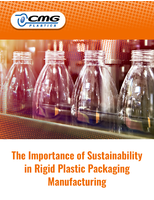New CCS System Proven to Efficiently Treat Fine and Submicron Particulate, Simultaneously with Gases

System is seen as the first technology to achieve high removal efficiencies operating at the flow volumes typical for large diesel engines.
July 11, 2007 Owosso, MI Tri-Mer Corporation, developer of CCS ("Cloud Chamber System") technology, recently teamed with U.S. air quality authorities on a full-scale demonstration of the CCS against diesel pollution at the train yard in Roseville, CA.
The test was significant not only for the specific application tested - emissions from locomotives that are immobile or moving short distances within a rail yard - but for all emitters of stationary diesel exhaust from large diesel engines.
Diesel exhaust ("DE") is widely recognized as one of the most difficult to treat emissions. It contains fine and submicron particulate matter (PM), NOx, and SO2. DE emissions include more than 40 substances listed by EPA as hazardous, as well as arsenic, benzene and formaldehyde. DE has serious potential to cause cardiovascular and pulmonary diseases. EPA has proposed classification of DE as a human carcinogen.
The demonstration testing was highly successful, and a Media Day event was held at the train yard by governmental authorities. The official report is posted on the Placer County Air Pollution Control District website, www.placer.ca.gov/apcd under the project name Advanced Locomotive Emissions Control System (ALECS).
Tri-Mer Corporation provided the diesel pollution control technology, including engineering, manufacturing and installation. After using its own particulate characterization equipment to calibrate the ALECS system, the government agencies contracted with an independent third party testing company to test, analyze and document particulate matter, SO2, and NOx for the final report.
With the successful demonstration test, CCS is now regarded as the first technology to demonstrate high removal efficiencies when operating at the flow volumes typical for large diesel engines. A similar test is planned for the Port of Long Beach on emissions from diesel generators of ships at dock - another key priority for local and national officials. The CCS technology is being applied to numerous other difficult applications as well. Units have operated 24/7 for more than six years with low operating costs, and very low maintenance costs.
CCS is effective air pollution control for any exhaust application that produces coarse, fine or super fine particles, such as those contained in stationary diesel engine exhaust. Efficiency levels are typically 99% or greater, and the system simultaneously removes condensables and soluble gases.
CCS offers significant energy advantages, because systems charge modules require just 10 watts of power per 1000 cfm. A 100 watt light bulb draws as much power as a charging head for 10,000 cfm. CCS is substantially more energy-efficient than traditional wet electrostatic devices.
CCS systems are manufactured in capacities to 300,000 cfm and larger. Applications in addition to diesel exhaust include power and steam production, glass manufacturing, fiber optic manufacturing, smelting, chemical processing, microelectronics fabrication, waste incineration, and dryers, ovens and rotary kilns used throughout industry. A fully instrumented pilot plant is available for demonstration.
For information, contact Kevin Moss, (801) 294-5422 kevin.moss@tri-mer.com or Rod Gravley, (541) 602-2690, rod.gravley@tri-mer.com




